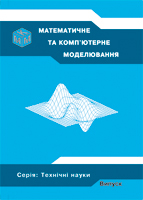Аналіз складності реалізацій криптосистем на групах
DOI:
https://doi.org/10.32626/2308-5916.2017-15.250-255Анотація
Представлений порівняльний аналіз реалізацій криптосистем на групах. Показано, що побудова криптосистем на групах вимагає ефективного алгоритму для відображень числа на групу і зворотного відображення з обчислювально простою груповою операцією. До теперішнього часу відома тільки одна реалізація криптосистеми MST3, побудованої за Абелевим центром групи СудзукіПосилання
Wagner N. R. and Magyarik M. R. «A Public Key Cryptosystem Based on the Word Problem». In Advances in Cryptology. Proceedings of CRYPTO 1984, P. 19–36, edited by G. R. Blakley and D. Chaum, Lecture Notes in Computer Science 196. Berlin: Springer, 1985.
Wagner N. R. «Searching for Public-Key Cryptosystems». In Proceedings of the 1984 Symposium on Security and Privacy (SSP ’84), P. 91–98. Los Alami-tos, CA: IEEE Computer Society Press, 1990.
Magliveras S. S. «A Cryptosystem from Logarithmic Signatures of Finite Groups». In Proceedings of the 29th Midwest Symposium on Circuits and Systems, P. 972–975. Amsterdam: Elsevier Publishing Company, 1986.
Lempken W., Magliveras S. S., Tran van Trung and Wei W. Apublic key cryptosystem based on non-abelian finite groups. J. of Cryptology. 2009. 22. P. 62–74.
##submission.downloads##
Опубліковано
Номер
Розділ
Ліцензія
Authors who publish with this journal agree to the following terms:- Authors retain copyright and grant the journal right of first publication with the work simultaneously licensed under a Creative Commons Attribution License that allows others to share the work with an acknowledgement of the work's authorship and initial publication in this journal.
- Authors are able to enter into separate, additional contractual arrangements for the non-exclusive distribution of the journal's published version of the work (e.g., post it to an institutional repository or publish it in a book), with an acknowledgement of its initial publication in this journal.
- Authors are permitted and encouraged to post their work online (e.g., in institutional repositories or on their website) prior to and during the submission process, as it can lead to productive exchanges, as well as earlier and greater citation of published work (See The Effect of Open Access).

